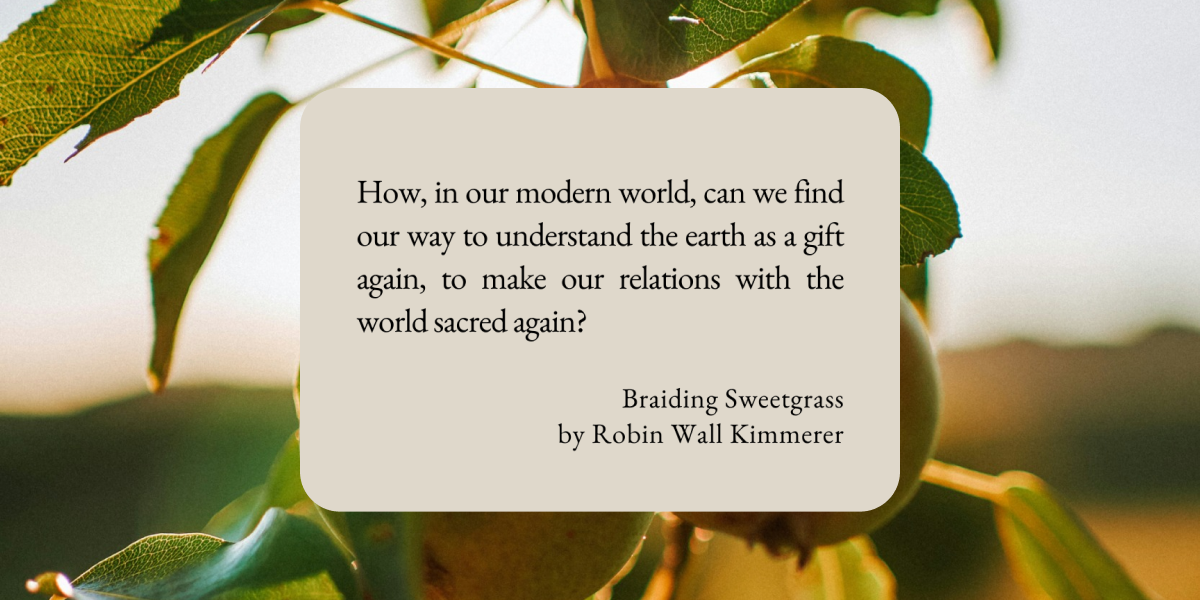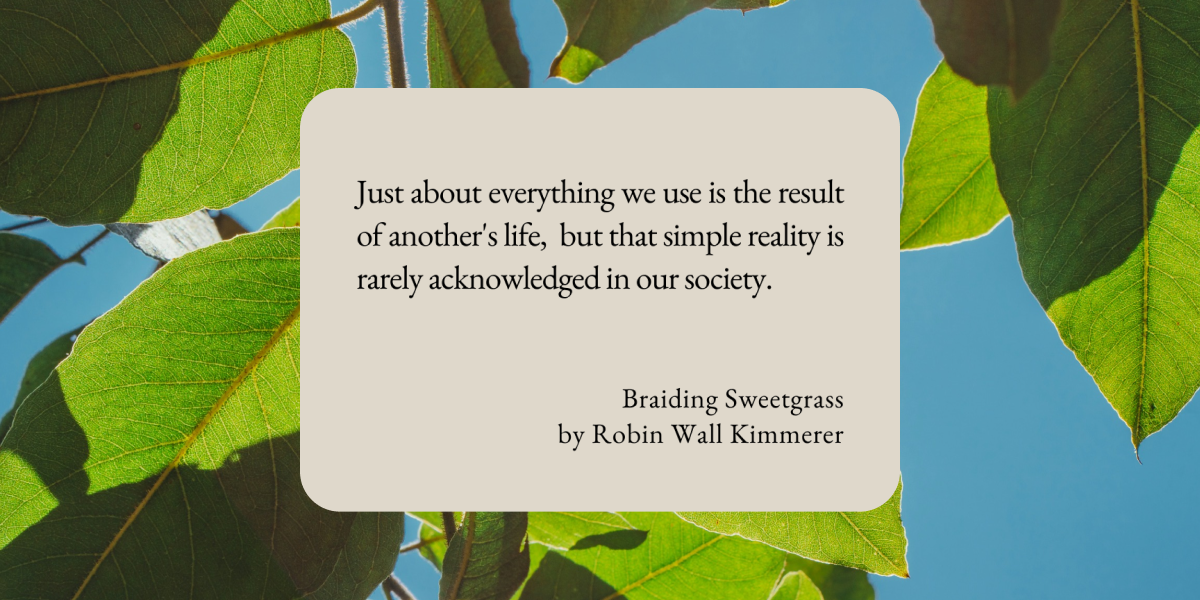Gratitude Beyond Mindfulness: An Antidote to Consumerism
Why Gratitude is not just a Mindfulness Practice, but an antidote to consumerism according to Robin Wall Kimmerer's Braiding Sweetgrass
Robin Wall Kimmerer's book Braiding Sweetgrass is described as a “a braid of stories meant to heal our relationship with the world”. As a Native American botanist, author, and distinguished professor, Kimmerer masterfully intertwines traditional wisdom, scientific explanations and profound national and family histories. This book is every bit as mythic as it is scientific, as sacred as it is historical, as beautiful as it is wise.
Braiding Sweetgrass has earned the title of my favorite non-fiction read this year, and I highly recommend you get yourself a copy.
Gratitude in a Consumerist World
In a world driven by consumerism, where the relentless pursuit of more has become a societal norm, "Braiding Sweetgrass," offers a revolutionary perspective on gratitude and its profound impact on our relationship with the Earth. Kimmerer weaves together indigenous wisdom, scientific insights, and personal narratives, presenting gratitude not just as a mindfulness practice but as a notion challenging the very foundations of our modern society.
Mother Earth and her Gifts
Most of what we own nowadays is a result of a transaction - money exchanged for goods and services. We have commercialised the Earth's offerings – essentials like food, shelter, medicine, warmth, and energy. Kimmerer prompts us to reconsider our relationship with the Earth, urging us to understand it as a gift rather than a commodity.
"How, in our modern world, can we find our way to understand the earth as a gift again, to make our relations with the world sacred again?"
Kimmerer draws a clear distinction between gifts and transactions, emphasising that a gift establishes a feeling-bond between two people or entities. A gift nurtures a relationship, shows care and kindness. Earth endowed us with gifts and asks only that we reciprocate with mindful respect.
"What do you suppose would happen if people believed this crazy notion that the earth loved them back?" One student summed it up: "You wouldn't harm what gives you love."
Indigenous Thanksgiving Practices
Kimmerer beautifully illustrates sacred indigenous practices of giving thanks, rituals that vary across Native American tribes but share a common thread – recognising and giving thanks for the abundance already present in our lives.
“The sunrise ceremony is our Potawatomi way of sending gratitude into the world, to recognize all that we are given and to offer our choicest thanks in return. Many Native peoples across the world, despite myriad cultural differences, have this in common - we are rooted in cultures of gratitude.”
The Thanksgiving Address, an embodiment of the Onondaga relationship with the world, serves as a daily reminder of having "enough" and leads to an outlook of contentment and respect for all of creation.
“And, while expressing gratitude seems innocent enough, it is a revolutionary idea. In a consumer society, contentment is a radical proposition. Recognizing abundance rather than scarcity undermines an economy that thrives by creating unmet desires. Gratitude cultivates an ethic of fullness, but the economy needs emptiness. The Thanksgiving Address reminds you that you already have everything you need. “
Mindful Consumption
Kimmerer recognises the challenges of mindful consumption in a world where everyday products often seem detached from nature. We are not passive recipients, we are trusted with a responsibility to give our thanks not only to earth for creating the materials needed for these products, but to the people who worked to make and deliver them to us. She calls on us to acknowledge the profound reality that everything we use is the result of another's life, a truth seldom acknowledged in our society.
“Just about everything we use is the result of another's life, but that simple reality is rarely acknowledged in our society.”
Transactional living has desensitised us to the true value of things. We neglect to ask the right questions and destroy what we deeply rely on. Kimmerer challenges us to question our consumption habits.
“Whether we are digging wild leeks or going to the mall, how do we consume in a way that does justice to the lives that we take? In our oldest stories, we are reminded that this was a question of profound concern for our ancestors. When we rely deeply on other lives, there is urgency to protect them. Our ancestors, who had so few material possessions, devoted a great deal of attention to this question, while we who are drowning in possessions scarcely give it a thought.”
"Braiding Sweetgrass" challenges us to shift from a consumer-driven mentality to one rooted in gratitude. The act of expressing gratitude, as seemingly innocent as it may be, disrupts the order of a society built on scarcity and unmet desires.
As Kimmerer puts it, "Gratitude doesn't send you out shopping to find satisfaction; it comes as a gift rather than a commodity, subverting the foundation of the whole economy. That's good medicine for land and people alike."






